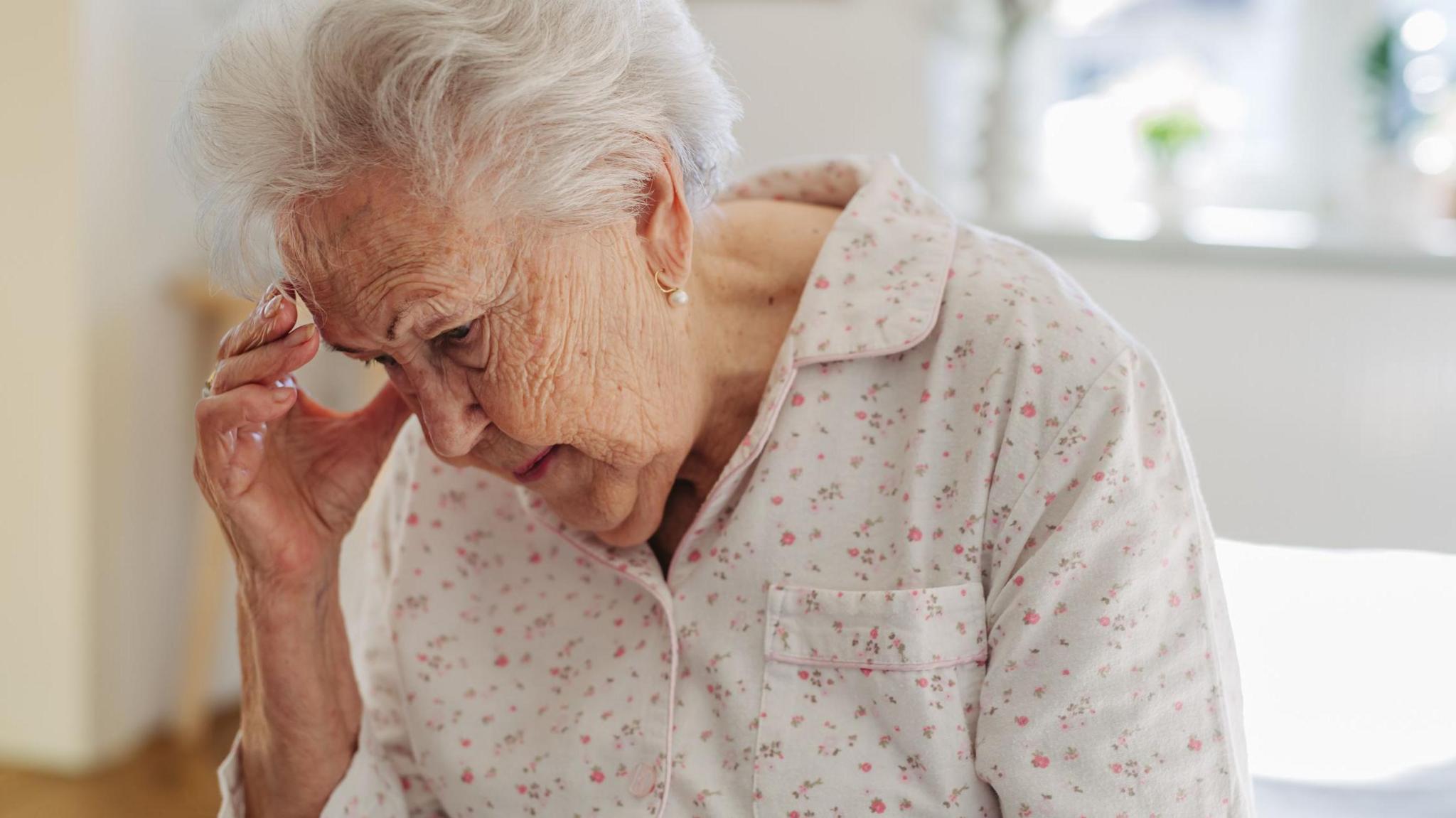Dementia volunteers gather to discuss support

Dorset Council previously released figures suggesting the number of people living with dementia in the county is expected to more than double over the next decade
- Published
Volunteers have come together to discuss how best to support people with dementia and their carers.
Almost 100 people from the voluntary and community sector in Dorset gathered for the Conversation on Dementia and Memory Loss conference.
The event, held in Dorchester, was part of a Dorset Council project aimed at offering members of the community a chance to share their perspectives.
The talk on dementia marked the start of a series of stakeholder conversations, which will run for 12 months.
The events are being run in partnership with the Dorset Voluntary and Community Sector Assembly.
The first was a three-hour conference, with a panel including Dorset Council's joint interim corporate directors for adults commissioning Mark Tyson and Jon Sloper.
Mr Sloper told the conference many people working in the voluntary sector had "stressed the need for enhanced communications, better networking and engagement".
John Major, from the Alzheimer's Society Research Network, said he had 30 years of experience with dementia, including 18 years caring for his wife.
He praised the council for organising an event encouraging people to come together.
"We are dealing with a condition that, in part, causes at least one third of all deaths," he said.
Dementia sufferers in county to double in 10 years
- Published12 January 2023
Dr Michele Board, who is leading research into ageing and dementia at Bournemouth University, said one way to alleviate the "stigma" attached to the condition was language.
She said: "It is always 'a person with dementia', always person first and not diagnosis, and we cannot assume someone is suffering."
Councillor Steve Robinson said the demographics for Dorset meant discussions about dementia were "particularly important".
His comments come after figures released by the council last year showed the number of people living with dementia is expected to more than double over the next decade.
Mr Robinson said: "If Dorset was a country, it would have one of the oldest demographics in the world.
"We need to recognise that people are ageing together. We want to make ageing enjoyed rather than endured."
Follow BBC South on Facebook, external, X (Twitter), external, or Instagram, external. Send your story ideas to south.newsonline@bbc.co.uk, external or via WhatsApp on 0808 100 2240, external.